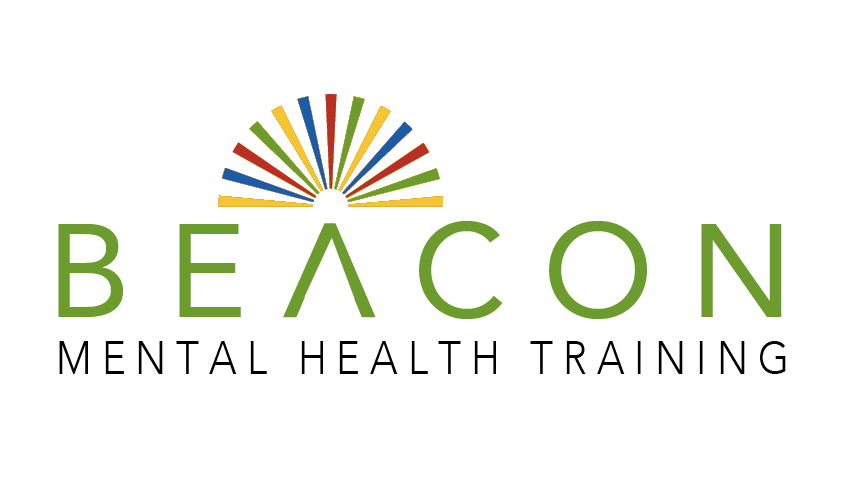So what is Mental Health First Aid anyway?
There is a lot of talk about Mental Health First Aid in the press and on Social Media but there still seems to be confusion about what it is, what it does and who it is for. Let’s look at how Mental Health First Aid can help your organisation, your employees and yourself.
There are people trained in all workplaces to deal with physical injuries, but very rarely are people trained to deal with mental health issues. Stigma around mental health means that some people resort to faking an injury (like a bad back) to hide mental illness. For the uneducated, there seems to be a couple of schools of thought, either people just need to ‘pull themselves together’ or you must be weak if you have a mental health disorder.
There is a huge drive to remove the stigma associated with mental ill health. With the figures showing that 1 in 4 of us will suffer from some sort of mental health disorder in any one year and 1 in 6 working aged people will have signs of a mental illness which do not meet the criteria for diagnosis. What is needed is parity of esteem – where mental health carries the same importance and acceptance as physical health.
What is in it for you?
By training people in your organisation to be able to spot signs and symptoms of mental ill-health. You’ll give your employees the confidence to know how to approach a colleague, listen effectively and signpost support options. This may not only reduce absenteeism in your workforce due to poor mental health but also reduce presenteeism.
What is Presenteeism?
Presenteeism is the practice of coming to work despite illness, often resulting in reduced productivity. The practice has tripled since 2010, with the increases linked to stress, anxiety and depression (1). The Centre for Mental Health calculates that presenteeism from mental ill health alone costs the UK economy £15.1 billion per annum, while absenteeism costs £8.4 billion (2).
People that attend a Mental Health First Aid course learn valuable skills around mental health disorders and become equipped with a range of tools to use when talking about mental health. Equally, attendance sends a strong message to the rest of the organisation that it is okay to open up and talk about mental health.
We know that NHS services are stretched and mental health is no exception. Spotting early signs of mental ill-health and helping to put measures in place, may just help individuals until they can access services and maybe prevent the condition from spiralling out of control.
What can you expect from the course?
Mental health education empowers people to care for themselves and others. By reducing stigma through understanding, you’ll break down barriers to the support that people may need to stay well, recover, or manage their symptoms
Just as nobody finishes a physical first aid course being able to diagnose medical issues, you don’t leave a Mental Health First Aid course being a councillor or Psychiatrist. You will however leave with a greater understanding of common mental health issues, a range of tools to help support colleagues, family and friends, and the confidence to have conversations about mental health.
The options
2-day course (qualifies you as a Mental Health First Aider)
Mental Health First Aiders have:
An in depth understanding of mental health and the factors that can affect wellbeing
Practical skills to spot the triggers and signs of mental health issues
Confidence to step in, reassure and support a person in distress
Enhanced interpersonal skills such as non-judgemental listening
Knowledge to help someone recover their health by guiding them to further support - whether that’s self-help resources, through their employer, the NHS, or a mix
1-day Course (you gain the title of MHFA Champion)
MHFA Champions have:
An understanding of common mental health issues
Knowledge and confidence to advocate for mental health awareness
Ability to spot signs of mental ill health
Skills to support positive wellbeing
½ day course (raise awareness of mental health)
Designed to give you:
An understanding of what mental health is and how to challenge stigma
A basic knowledge of some common mental health issues
An introduction to looking after your own mental health and maintaining wellbeing
Confidence to support someone in distress or who may be experiencing a mental health issue
For more detail about the courses, please visit www.beaconlearningandperformance.co.uk
Why I am so passionate about training this course
I am an experienced trainer and facilitator who can also share my own experiences of mental ill-health. Lived experiences not only help with understanding around the various disorders, but also encourage others to share valuable insights.
There is real hope for recovery. These courses give people the confidence and motivation to engage and help people who might be suffering.
Ref: (1) https://www.cipd.co.uk/knowledge/culture/well-being/health-well-being-work. Accessed October 2018
(2) https://www.centreformentalhealth.org.uk/publications/managing-presenteeism. Accessed October 2018
About Amanda - I am the owner of Beacon Learning and Performance Ltd and I am freelance trainer and coach. Specialising in Mental Health training I'm a MHFA England Instructor who is passionate about removing the stigma around mental health illnesses, encouraging people to talk and not be ashamed for the way they feel. Being a mum of two fantastic children, I want them to grow up in a community where people are empowered and supported to speak up, and recognise we all have mental health, it is the state of our mental health and wellbeing that needs looking after. To discuss Mental Health First Aid training options with me please get in touch via amanda@beaconlearningandperformance.co.uk
